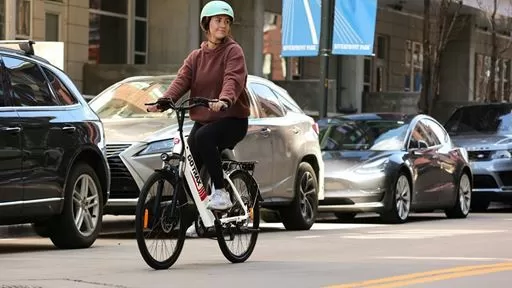As cities around the world continue to grow and expand, one of the biggest challenges they face is the issue of traffic congestion. With more and more people relying on cars for transportation, the streets of our cities have become increasingly clogged, causing frustration and delays for commuters. However, there is a glimmer of hope on the horizon – the rise of new and improved technologies is paving the way for a more efficient and sustainable future.
In recent years, there has been a significant increase in the number of cars being replaced in cities. This is not just a trend, but a necessary step towards improving congestion and reducing the climate impact of our cities. With the introduction of electric and hybrid vehicles, we are seeing a shift towards more environmentally friendly modes of transportation. These vehicles emit significantly less carbon emissions compared to traditional gasoline or diesel cars, making them a crucial part of the fight against climate change.
But it’s not just about the type of vehicles being used, it’s also about how they are being used. The development of smart technology has allowed for the implementation of innovative solutions to tackle congestion in cities. One such example is the use of intelligent traffic management systems, which use real-time data to optimize traffic flow and reduce delays. This not only improves the overall driving experience for commuters, but also reduces the amount of time spent idling in traffic, thus reducing carbon emissions.
Another exciting development is the rise of ride-sharing services. With the popularity of apps like Uber and Lyft, more and more people are opting to share rides rather than driving their own cars. This not only reduces the number of cars on the road, but also helps to alleviate parking issues in cities. Additionally, car-sharing services like Zipcar and Car2Go are gaining popularity, providing a convenient and cost-effective alternative to car ownership. This trend not only reduces congestion, but also promotes a more sustainable lifestyle.
But it’s not just about cars – the advancement of public transportation systems is also playing a crucial role in improving congestion in cities. With the development of high-speed trains, subways, and light rail systems, people are now able to travel faster and more efficiently, reducing the need for personal vehicles. Furthermore, the integration of smart technology in public transportation has made it more convenient and user-friendly, encouraging more people to use it as their primary mode of transportation.
The benefits of replacing cars in cities are not limited to reducing congestion and carbon emissions. It also has a positive impact on the economy. With fewer cars on the road, there is less need for expensive road maintenance and construction, saving cities and taxpayers money. Additionally, the rise of electric and hybrid vehicles has created a new market for jobs in the clean energy sector, providing a boost to the economy.
Of course, there are still challenges to overcome in the process of replacing cars in cities. The infrastructure for electric vehicles, such as charging stations, needs to be expanded to accommodate the growing number of these vehicles on the road. Moreover, the cost of electric and hybrid vehicles is still a barrier for many people, and more efforts need to be made to make them accessible to all.
In conclusion, the replacement of cars in cities is a positive and necessary step towards a more sustainable future. With the development of new technologies and the shift towards more environmentally friendly modes of transportation, we are making significant progress in reducing congestion and the climate impact of our cities. However, it is important to continue investing in and promoting these advancements to ensure a cleaner, more efficient, and more livable environment for all. Let us embrace these changes and drive towards a better tomorrow.

